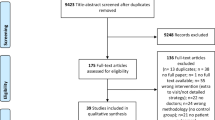Abstract
Physicians may choose one of several strategies when initially uncertain about making a specific therapeutic recommendation. The authors investigated how patients’ satisfaction is affected by disclosure of uncertainty and its attempted resolution during a clinical encounter. Three hundred and four patients awaiting appointments at a university hospital’s ambulatory medical clinic were randomized to view one of five videotapes (VTs) of a patient seeking advice about antimicrobial prophylaxis for a heart murmur. In VT-1 and VT-2, the physician disclosed no uncertainty and prescribed therapy. In VT-3, VT-4, and VT-5, the physician openly conveyed uncertainty but then: (VT-3) prescribed antibiotics without resolving his uncertainty; (VT-4) consulted a reference book with the patient present, then prescribed; or (VT-5) checked a computer with the patient present, then prescribed. Patients rated their satisfaction with the physician on a standardized questionnaire. Differences in satisfaction between the five VTs were significant (p=0.001), with the highest ratings found for VT-1 and VT-2, where no uncertainty was disclosed. The lowest ratings in satisfaction were found when the physician expressed but then ignored uncertainty (VT-3) or examined a textbook (VT-4). Global satisfaction was inversely and significantly correlated (r=−0.47) with the patients’ perception of uncertainty in the physician. The manner in which clinical uncertainty is disclosed to patients and then resolved by the physician appears to affect patients’ satisfaction.
Similar content being viewed by others
References
Bartlett EE, Grayson M, Barker R, Levine DM, Golden A, Libber S. The effects of physician communication skills on patient satisfaction, recall, and adherence. J Chronic Dis 1984;37:755–64
Ley P. Satisfaction, compliance, and communication. Br J Clin Psychol 1982;21:241–54
Ware JE, Davies AR. Behavioral consequences of consumer dissatisfaction with medical care. Evaluation and Program Planning 1983;6:291–7
Vaccarino JM. Malpractice, the problem in perspective. JAMA 1977;238:861–3
DiMatteo MR, Hays R. The significance of patients’ perceptions of physician conduct: a study of patient satisfaction in a family practice center. J Community Health 1980;1:18–34
Stiles WB, Putnam SM, Wolf MH, James SA. Interaction exchange structure and patient satisfaction with medical interviews. Med Care 1979;17:667–9
Comstock LM, Hooper EM, Goodwin JM, Goodwin JS. Physician behaviors that correlate with patient satisfaction. J Med Educ 1982;57:105–12
Fox RC. The evaluation of medical uncertainty. Milbank Mem Fund Q 1980;58:1–49
Thomson GH. Tolerating uncertainty in family practice. J R Coll Gen Pract 1978;28:343–6
Wolf MH, Putnam SM, James SA, Stiles WB. The medical interview satisfaction scale: development of a scale to measure patient perceptions of physician behavior. J Behav Med 1978;1:391–401
Roter DL, Hall JA, Katz NR. Relations between physicians’ behaviors and analogue patients’ satisfaction, recall, and impressions. Med Care 1987;25:437–51
Cronbach LJ. Coefficient alpha and the internal structure of tests. Psychometrika 1951;16:297–333
Kaplan S. Personal communication
Haug MR, Lavin B. Public challenge of physician authority. Med Care 1979;17:844–58
Robinson JP, Shaver PR. Measures of social psychological attitudes. Ann Arbor, MI: Survey Research Center Institute for Social Research, 1973
Wolf MH, Stiles WB. Further development of the medical interview satisfaction scale. Personal communication
SAS/STAT guide for personal computers. Version 6 edition. North Carolina: SAS Institute, Inc., 1985
Murphy-Cullen CL, Larsen LC. Interaction between the sociodemographic variables of physicians and their patients: its impact upon patient satisfaction. Soc Sci Med 1984;19:163–6
Linn LS. Factors associated with patient evaluation of health care. Milbank Mem Fund Q 1975;53:531–48
Kerlinger FN. Foundations of behavioral research. New York: Holt, Rinehart, and Winston, 1973:548–9
Katz J. The silent world of doctor and patient. New York: The Free Press, 1984
Thomasma DC. Beyond medical paternalism and patient autonomy: a model of physician conscience for the physician-patient relationship. Ann Intern Med 1983;98:243–8
Cassell EJ. Talking with patients. Vols. 1 & 2. Cambridge, MA: MIT Press, 1985
Author information
Authors and Affiliations
Additional information
Received from the General Medicine Unit. Department of Medicine; and the Division of Behavioral and Psychosocial Medicine, Department of Psychiatry, University of Rochester School of Medicine and Dentistry, Rochester, New York. Dr. Johnson is now at the North Canton Medical Foundation, North Canton, Ohio.
Supported by a grant from the Charles A. Dana Foundation.
Rights and permissions
About this article
Cite this article
Johnson, C.G., Levenkron, J.C., Suchman, A.L. et al. Does physician uncertainty affect patient satisfaction?. J Gen Intern Med 3, 144–149 (1988). https://doi.org/10.1007/BF02596120
Issue Date:
DOI: https://doi.org/10.1007/BF02596120




